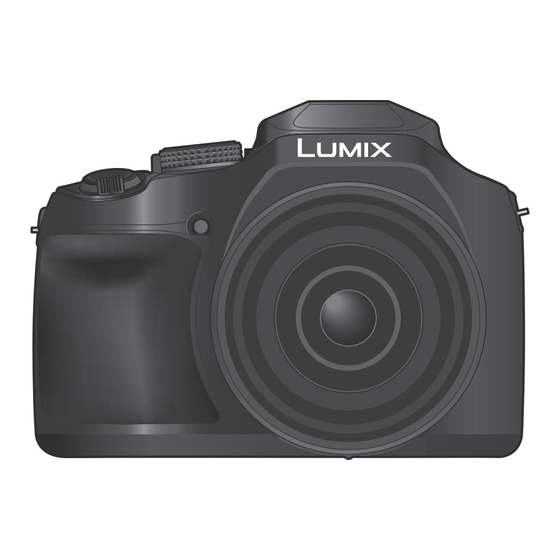Table of Contents
Advertisement
Model No.
Please read these instructions carefully before using this product,
Message Display
Q&A Troubleshooting
Finding the information you need
Contents
Contents by Function
Menu list
Register online at
http://shop.panasonic.com/support/register
(U.S. customers only)
Operating Instructions
for advanced features/
Owner's Manual
for advanced features
DC-FZ80D/DC-FZ82D
and save this manual for future use.
Digital Camera
→246
→248
→2
→4
→9
→170
DVQP3156ZA
M0624KZ0
Advertisement
Table of Contents


















Need help?
Do you have a question about the LUMIX DC-FZ80DK and is the answer not in the manual?
Questions and answers
How do I save a picture that I've zoomed to view after it's recorded?
To save a zoomed picture on the Panasonic DC-FZ80DK after recording:
1. Use the slide bar during enlarged display to make fine focus adjustments.
2. Touch the [ ] icon on the screen to save the picture.
3. The picture will be saved in JPEG format.
This answer is automatically generated
How to reset fz80 panasonic camera to factory settings
To reset the Panasonic LUMIX DC-FZ80DK camera to factory settings:
1. Go to the [Setup] menu.
2. Select [Reset].
3. Confirm the reset.
This will reset the recording settings (except for [Face Recog.] and [Profile Setup]), drive mode, and setup/custom settings, including [World Time], [Travel Date], [Rotate Disp.], and [Picture Sort].
This answer is automatically generated
האם ניתן לצלם תמונה על גבי תמונה?
Yes, the Panasonic DC-FZ80DK can create new pictures by editing existing ones using features like [RAW Processing], [Light Composition], [Clear Retouch], [Text Stamp], and [Cropping], which effectively allows generating a picture over another. However, it does not specifically mention overlaying one photo directly on top of another.
This answer is automatically generated